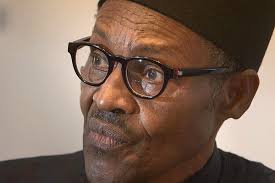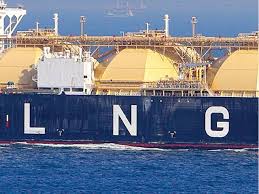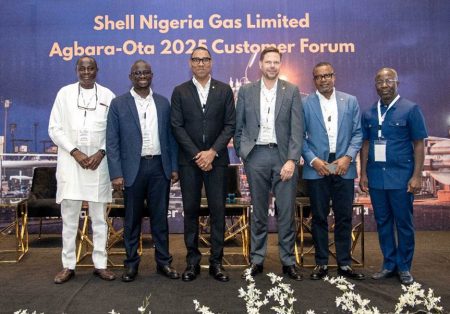06 December 2015, Lagos – Nigeria’s relations with Iran can be explained bilaterally, plurilaterally and multilaterally. The bilateral relations are characterized by a quest for beneficial gains and suspicions predicated by irritants. In May 2010, the visiting Deputy Minister of Foreign Affairs of Iran, Mr. Soleyman Pour and Nigeria’s Minister of State for Foreign Affairs, Dr. Idi Hong, declared in Abuja that Nigeria and Iran wanted to explore ‘beneficial nuclear use in the field of medicine and also for energy generation.’

The plurilateral ties are characterized by competition within the framework of organizational solidarity, while the multilateral relations are predicated on alliance or group interests. For illustration purposes, the Islamic Republic of Iran and Nigeria relate at the level of the OPEC, D-8, Gas Exporting Countries Forum (GECF), etc all of which fall under the plurilateral category. Nigeria and Iran are also members of the United Nations where bilateral and plurilateral issues of interest are discussed in a global context. In this column, emphasis will be placed more on the bilateral and plurilateral dimensions of the relationship.
Mr. S.A. Mortazavi, the Deputy Chief of Mission of the Embassy of Iran to Nigeria, who, according to Cletus Akwaya, Director General of the International Relations Research Centre (RICC), said ‘many Nigerians have been living with the impression that Iran is an Arab nation, whereas it is not. “In the whole of the Middle East, its (sic) only Iran and Israel that are not Arab nations, but some people do not know this fact.” This misconception may have created some crisis of identity and affects how Nigerians relate with the Islamic Republic of Iran’ (ThisDay, November 15, 2015, p.18). Consequently, Iran should not be confused with Iraq. And true, Iran is the 18th largest country in the world by population (80,840,713 m); 18th largest by land area (1,648,195 sq. km. The country was known until 1935 as Persia. It became an Islamic Republic in 1979. In fact, even though Iran has one of the biggest oil and gas reserves in the world, producing 60 million tons of petrochemicals annually for domestic use, it has reduced its dependence on oil revenue to 30% in 2015.
The Factors of Divergence
There are factors of divergence which pull both countries apart and factors of convergence which bring or push both countries together. At the level of factors of divergence, before the Iranian revolution of 1979, Iran was aiding and abetting apartheid South Africa. This position of Iran raised eye brows in Nigeria when in 1978 a high-powered delegation led by the Chief of Staff in the Supreme Headquarters, Brigadier Shehu Yar’Adua, was sent to Teheran.
In a Nigerian Herald editorial of January 20, 1978, many questions were raised: ‘what the generality of articulate observers of Nigeria’s new turn in foreign policy has been asking since the high-powered delegation’s trip to Teheran is why the link with Iran? Why now? And why is such an embryonic diplomatic feeler-contact being upgraded to a relationship deserving instant elevation to ambassadorial level?’ Without any whiff of doubt, these questions are asked against the background of the conflict between Nigeria’s policy of ‘no compromise with apartheid directly or indirectly’, on the one hand, and Iran’s hobnobbing policy with apartheid South Africa, on the other.
And true enough, Shehu Yar’Adua’s visit, which was at the instance of the Iranian Prime Minister, Mr. Jamshid Amouzegar, can be rightly justified as the outcome of the visit was in many ways quite helpful to the attainment of Nigeria’s foreign policy objectives. First, on Tuesday, January 17, 1978, Nigeria decided to upgrade her diplomatic mission in Teheran to an ambassadorial level in order to make it at par with the Embassy of Iran in Nigeria. Secondly, it was agreed that a delegation from each country would visit the other during the first half of 1978. Thirdly, and perhaps most significantly, both countries ‘reiterated their call for an end to alien domination in Namibia, an earlier majority rule in Zimbabwe, and an end to the pernicious practice of apartheid in South Africa’ (Federal Ministry of Information, Press Release No. 75, Lagos, January 18, 1978). Prime Minister Bakiar thereafter also announced the Iranian government’s decision to cut off oil supplies to apartheid South Africa, a decision that Nigeria joyfully welcomed (Federal Ministry of Information, Press Release No. 24, January 8, 1979). In 1989, an Iranian delegation came to Nigeria to explain and seek Nigeria’s support on the imposition of death sentence by Ayatollah Khomeini on Salmon Rushdie who published in 1988 a book entitled ‘The Satanic Verses,’ but which Ayatollah Khomeini considered very blasphemous of Islam (The Guardian, March 11, 1989, p.3).
To a great extent, there was no good basis for proclamation of death sentence on expression of viewpoints. Reciprocally, all that was required was also to condemn Rushdie and whatever religious beliefs he holds. No single individual or state or group of people should arrogate to himself or itself the monopoly of any policy action, belligerent or otherwise. It is because a state or a president freely arrogates the power of unilateral decision that international politics is currently ridden with crises and conflicts. This is why Boko Haram can wake up in the morning that Nigeria or North East of Nigeria should be an Islamic state or nothing else. The Iranian delegation’s quest for support from Nigeria created unnecessary suspicions at the level of defense of human rights and, particularly between Muslims and non-Muslims.
There is also the perception of Iran as trainer of Nigerian youths for subversion to which Dr. Alex Fom, Secretary of the Nigerian People’s Party (NPP) drew the attention of the general public. As put by Dr. Fom, ‘in the northern part of the country, a religious sect which until now had not identified itself with a particular name, carried about photographs of the Iranian leader, Ayatollah Khomeini, in their vans and cars.’ He noted further that ‘the sect also pasted the photographs in public places and distributed leaflets in the night.’ In fact, as he submitted, ‘the sect was already rebelling against the traditional Islamic religion’ in the country (Nigeria Standard, November 30, 1982, p.12). In its Editorial of December 3, 1982, Nigeria Standard again noted that Iran awarded scholarships to many Nigerians annually for Islamic studies but also strictly adheres to the revolutionary, fundamentalist ideals of Islam. Consequently, ‘it is not unlikely…that Iran would want to export, via the scholarship beneficiaries, its fundamentalist ideals to Nigeria which has the largest population of Moslems in the African continent.’
Contrary to the UN Security Council Resolution 1929 of June 2009 which imposed more sanctions on Iran, Teheran government was on record to have been exporting weapons. On October 26, 2010, a ship containing 13 containers of weapons, including 107 mm artillery rockets, which can hit accurately targets more than 8.5 km away and with a 12-meter killing radius; rifle rounds; and arms, sailing from Bandar Abbas, was attached in Lagos, Besides, $10 million worth of heroin, which was hidden in the engine section, was also discovered.
The cargo, which was labeled ‘building materials,’ and transferred to a warehouse as the consignee was consciously but wrongly written to be a Nigerian, was later intercepted when it was returned to the port for re-export to The Gambia. The problem generated much diplomatic row as The Gambia had to strain its diplomatic ties with Iran. Senegal did same, on discovering that the weapons would also be used to sustain the insurrection in the Casamance province of Senegal.
Apart from the conflict in foreign policy positions on Israelo-Arab conflict, in which, for example, the Iranian Deputy Foreign Minister in charge of Arab and African Affairs, Mr. Hossein Sheikh Al-Islam, urged Nigeria during his visit to Nigeria in December 1988 not to recognize the State of Israel (National Concord, December 12, 1988, p.10), whereas Nigeria’s policy is on the promotion of peaceful co-existence of both parties, there are also more recent irritants in the relationship.
On February 20, 2013 the Department of State Security announced the arrest of a 3-member Iranian-backed terrorist squad led by a 50-year old Nigerian Shi’ite cleric, Mallam Abdullahi Mustapha Berende, who had been trained in Iran on the manufacture of Improvised Explosive Devises (IED), use of AK-47 rifles and pistols. The squad was said to be plotting to assassinate Nigerian officials and attack Israeli and American interests in Nigeria (The Punchng.com. February 21, 2013).
Berende was reportedly asked by Iran to establish a terrorist cell in Lagos in April 2012. The DSS arrested him on December 17, 2012. Although Iranian Deputy Foreign Minister, Amir-Abdollahian, denied on February 25, 2013 any engagement in the establishment of any spy cell in Nigeria, arguing that the allegations were ‘made up as a result of the ill-will of the enemies of the two countries’ good relations,’ Berende, who was accused earlier on February 20 by the DSS of leading an Iranian-backed terrorist group in Nigeria, admitted that he had carried out surveillance for the Iranians. These factors are not helpful to Irano-Nigerian entente-making.
The Factors of Convergence
At the level of factors of convergence, religion is one of them. The Iranian Foreign Minister, Ali Akbar Velayati, brought a special invitation to Nigeria’s leader to attend the Organisation of Islamic Conference scheduled to hold in December 1997 (ThisDay, July 04, 1997, p.9). The Iran-Iraq war was a factor of convergence as Professor Bolaji Akinyemi, Nigeria’s Foreign Minister, had to express much concern to his Iranian counterpart, Dr. Adua Valiyaki, especially in terms of the need to redirect their resources to development rather than to war (Sunday Standard, August 17, 1986, p.6).
The devastating earthquake in Iran in June 1990 though a negative factor, also brought the two countries together as Nigeria had to send a Hercules C-130 transport airplane-load of relief materials for the victims (New Nigerian, June 29, 1990, p.1). On April 15, 1996, Nigeria and Iran signed a cultural and educational cooperation agreement the negotiations of which began in 1978. Dr. Walter Ofonogoro, then Minister of Information, said ‘the agreement will essentially improve the quality of life of the peoples of both countries as it would facilitate the mutual exchange of developmental materials.’ His Iranian counterpart, Mustapha Mirsaleen, said Iran had a lot to share with Nigeria, ‘considering its 7000 years old civilization and decades of development unaffected by foreign influences (New Nigerian, April 16, 1996, p.3).
In fact, Nigeria’s Olusegun Obasanjo and Iranian leader, Mohammed Khatami signed five MoUs in 2001 on cooperation. One of them was on the provision of $1.5 million by Iran to Nigeria for a feasibility study on the establishment of a transformer manufacturing plant in Nigeria. As explained by Obasanjo, ‘there is no doubt that the relationship between Nigeria and Iran is very much on the solid rock’ (The Guardian, January 14, 2005, p.3).
Iran showed readiness to assist Nigeria in the quest to free the kidnapped girls when the Director General of the Iranian Foreign Ministry’s Department of African Affairs, Valiallah Mohammadi Nasrabadi, addressed the international conference on ‘Unity against Terrorism and Extremism in Teheran’ (May 22, 2014 Tehran FNA). Iran also offered to assist Nigeria in nuclear technology on October 22, 2014 to boost electricity generation. On May 25, 2015 Iran announced its intention to establish spare parts industry in Nigeria. As explained by the Iranian Ambassador to Nigeria, Koozechi, Iran has achieved self-sufficiency in car manufacturing with annual product capacity of 1.7 million units. To what extent do these factors help at the GECF level?
Impact of the Third Gas Exporting Countries Forum
The foundation for the establishment of the Gas Exporting Countries Forum (GECF) was laid on May 19-20, 2001 when the first Ministerial Meeting convened by the Iranian Minister of Petroleum took place and was attended by Algeria, Brunei, Indonesia, Iran, Malaysia, Oman, Qatar, the Russian Federation, Turkmenistan and Norway which attended in an observer capacity.
Thus Nigeria was not an original member of the Council of the GECF, but the GECF has become one of the factors of convergence at the plurilateral level of ties. The declared aims of the Forum include fostering the concept of mutuality of interests by favouring dialogue among producers of gas, between producers and consumers, and between governments and energy-related industries, as well as providing a platform for research and exchange of views, and promoting a stable and transparent energy market.
The GECF had its first summit on December 15, 2011 in Doha as agreed to at the 11th Ministerial Meeting held in Qatar. Algeria, Iran, Nigeria, Equatorial Guinea, Bolivia, Russia and Oman were represented by their sovereigns and presidents while Kazakhstan, Norway, the Netherlands and Venezuela were represented by their Ministers of Energy. The second GECF summit was held in Moscow on July 1, 2013. Algeria, Bolivia, Egypt, Equatorial Guinea, Iran, Libya, Nigeria, Oman, Qatar, Russia, Trinidad and Tobago, United Arab Emirates and Venezuela attended as full members. Iraq, The Netherlands and Norway attended as observers. The third GECF summit was held last week in Teheran, Iran with 17 countries attending. Nigeria’s President Muhammadu Buhari (PMB) took active part in the summit.
PMB urged the summit to ensure that the pricing mechanism of gas is to the advantage of GECF members in the global market, that there is mutual technical and economic cooperation amongst members, and that an end is collectively put to unnecessary gas flaring. PMB did well by drawing attention to collective interests. However, there is nothing to suggest that Nigeria will be listened to. First, Iran’s relationship with Nigeria, as we have seen above is partly fraught with suspicions. Secondly, Nigeria and Equatorial Guinea are the only black African members attending.
Countries like Libya, Egypt, Algeria, etc are only African by geo-political location on the African continent. Their interests are a priori driven by Arab interests. The extent to which Equatorial Guinea can also be expected to go along with Nigeria is another matter for debate. Thirdly, it should not be forgotten that Dr. Hossein Adeli, an Iranian Professor of Economics and former Governor of the Iranian Central Bank competed with Nigeria’s Ambassador, Shuaib Adamu Ahmed, a Chartered Accountant and Financial Consultant for the position of Secretary General. The GECF approved the re-appointment of Dr. Adeli as Secretary General for another period of two years.
Consequently, the extent to which Nigeria will be able to influence the GEFC is not only limited but also requires a re-strategy. There is the need for a foreign policy recalculation on what to pursue specifically at the level of the GEFC beyond its set general objectives. The impact of Nigeria’s membership of the GECF is yet to be meaningfully felt.
- This Day



